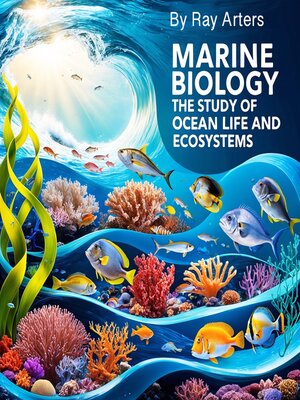
Sign up to save your library
With an OverDrive account, you can save your favorite libraries for at-a-glance information about availability. Find out more about OverDrive accounts.
Find this title in Libby, the library reading app by OverDrive.



Search for a digital library with this title
Title found at these libraries:
| Library Name | Distance |
|---|---|
| Loading... |
This audiobook is narrated by a digital voice.
The ocean represents Earth's largest habitat, covering approximately 71% of the planet's surface and containing over 99% of the biosphere's living space by volume. This vast aquatic realm encompasses environments ranging from sunlit surface waters to the perpetual darkness of abyssal depths, from tropical coral reefs to ice-covered polar seas, each supporting unique communities of organisms that have evolved remarkable adaptations to thrive in the marine environment.
The physical and chemical properties of seawater create the fundamental conditions that shape marine life, with salinity, temperature, pressure, and light availability serving as primary factors influencing the distribution and evolution of marine organisms. Seawater's average salinity of 35 parts per thousand creates an osmotic challenge for most organisms, requiring specialized physiological mechanisms to maintain water balance and cellular function in this hyperosmotic environment.
Temperature stratification in the ocean creates distinct thermal zones that profoundly influence marine ecosystems, with the thermocline serving as a barrier that separates warm surface waters from cold deep waters in most regions. This thermal structure affects nutrient distribution, oxygen levels, and organism distribution, creating vertical zonation patterns that are among the most fundamental organizing principles in marine ecology.







